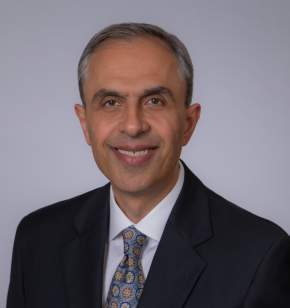Risks of CSF Leaks


Cerebrospinal fluid (CSF) is a clear, colorless liquid that surrounds and protects our brain and spinal cord. It acts as a cushion, providing nutrients and removing waste from these vital organs. When there's a tear in the protective layers covering the brain or spinal cord, CSF can leak out, leading to a condition known as a CSF leak.
While this may sound alarming, it's important to understand the risks associated with this condition.
What is a CSF Leak?
A CSF leak occurs when there's a hole or tear in the dura mater, the outermost layer of protective tissue surrounding the brain and spinal cord. This allows the cerebrospinal fluid to escape, and can lead to a variety of symptoms and complications.
Common Causes of CSF Leaks
CSF leaks can happen for several reasons:
- Head or spine injuries
- Certain medical procedures, including lumbar punctures (spinal tap) or epidural catheter placements for pain management
- Previous brain or spinal surgeries
- Spontaneous leaks, often related to increased pressure in the brain
Why should you have your surgery with Dr. Cohen?
Dr. Cohen
- 7,500+ specialized surgeries performed by your chosen surgeon
- More personalized care
- Extensive experience = higher success rate and quicker recovery times
Major Health Centers
- No control over choosing the surgeon caring for you
- One-size-fits-all care
- Less specialization
For more reasons, please click here.
Recognizing the Symptoms
The symptoms of a CSF leak can vary depending on its location and severity. Common signs include:
- Persistent, positional headaches that worsen when sitting or standing
- Clear, watery discharge from the nose or ears
- Neck or shoulder pain
- Changes in hearing or vision
- Nausea and vomiting
- Dizziness or imbalance
The Risks of Untreated CSF Leaks
While some CSF leaks may resolve on their own, leaving them untreated can lead to serious complications. Let's explore the biggest risks associated with CSF leaks:
Meningitis
The most significant risk of an untreated CSF leak is meningitis, an infection of the protective membranes covering the brain and spinal cord. When there's a breach in these protective layers, bacteria can enter and cause a potentially life-threatening infection.
Meningitis can lead to severe complications and requires immediate medical attention and treatment with intravenous antibiotics. When left untreated, meningitis can lead to complications including seizures, need for additional surgery, stroke, bleeding, and may even be fatal.
Intracranial Hypotension
As CSF leaks out, the pressure inside the skull decreases, a condition known as intracranial hypotension. This can cause the brain to sag within the skull, leading to severe headaches, especially when upright.
In some cases, this sagging can cause tearing of blood vessels near the brain's surface, resulting in a condition known as a subdural hematoma. A subdural hematoma (SDH) is bleeding in the space around the brain, that may require surgery.
Pneumocephalus
In rare cases, a CSF leak can allow air to enter the space around the brain, in a condition called pneumocephalus. This can increase pressure inside the skull, leading to symptoms such as headaches, confusion, and even life-threatening complications, if not addressed promptly.
Chronic Pain and Neurological Issues
Persistent CSF leaks can lead to chronic pain, particularly headaches that worsen when upright. Additionally, ongoing leaks may cause various neurological symptoms, including:
- Visual disturbances
- Hearing changes or tinnitus (ringing in the ears)
- Cognitive difficulties or "brain fog"
- Balance problems
- Neck and shoulder pain
Seizures
In some cases, untreated CSF leaks can lead to seizures. The exact mechanism isn't fully understood, but it's thought to be related to changes in brain pressure and chemistry caused by the leak
Increased Risk of Future Leaks
Once a person has experienced a CSF leak, they may be at higher risk for future leaks, especially if the underlying cause isn't addressed. This is particularly true for spontaneous leaks, which may be associated with underlying conditions that increase intracranial pressure.
Complications from Delayed Treatment
The longer a CSF leak goes untreated, the higher the risk of complications. Persistent leaks may require more invasive treatments, such as surgical repair, which carries its own set of risks.
Additionally, prolonged leaks can lead to changes in brain chemistry and function, potentially causing long-term neurological issues.
Diagnosis and Treatment
Given the serious risks associated with CSF leaks, prompt diagnosis and treatment are crucial. Diagnosis typically involves a combination of medical history, physical examination, and imaging studies. In some cases, doctors may analyze fluid samples to confirm the presence of CSF.
Treatment options range from conservative measures like bed rest and hydration to more invasive procedures such as epidural blood patches or surgical repair. The choice of treatment depends on the location and severity of the leak, as well as individual patient factors.
Key Takeaways
- Understanding the risks of a CSF leak is an important step toward getting timely, effective treatment.
- Proper medical care can help prevent or reduce serious complications related to CSF leaks.
- If you suspect a CSF leak, seek professional medical advice without delay.
- With the right treatment, most individuals recover fully and return to their usual activities.
- Prioritizing your health and seeking early care can greatly improve your outcome and overall well-being.











